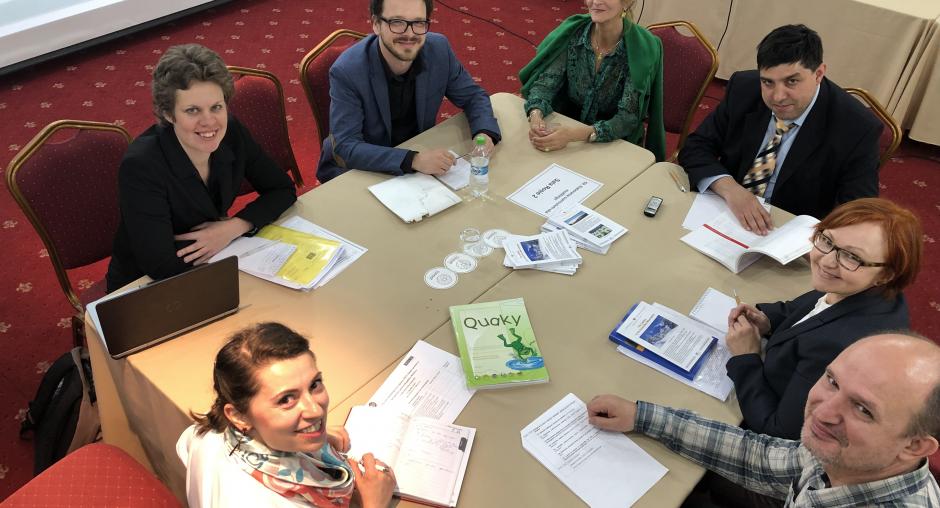Office of OSCE High Commissioner on National Minorities co-organizes conference to promote multilingual education in Moldova

Some 70 experts and practitioners involved in multilingual education shared their experiences at a conference on “Multilingual education in the OSCE region: experiences and perspectives for Moldova” on 11 April 2019 in Chisinau. The conference was organized by the office of the OSCE High Commissioner on National Minorities and the Ministry of Education, Culture and Research of Moldova.
The participants included representatives of regional education authorities and people working to develop educational content across Moldova; representatives of national minority communities; and international experts from Estonia, Georgia, Italy, the Netherlands, North Macedonia and Spain.
Opening the conference, Moldova’s Minister of Education, Culture and Research Monica Babuc said: “Creating the necessary conditions for a balanced approach to enable national minorities to learn the Romanian language and their mother tongue is one of the priorities of the Ministry of Education, Culture and Research. In this regard, multilingual education brings added value to all citizens and is a tool to enhance mutual understanding and tolerance.“
The participants shared their experiences of multilingual education, both in Moldova and across the OSCE region, and discussed recommendations for the future of multilingual education in Moldova.
HCNM Director Christophe Kamp highlighted the concepts and good practices in multilingual education that the office of the High Commissioner and its partners have identified, tested and promoted over the past 25 years in the OSCE region.
“This conference offers an opportunity to engage in an open and critical discussion about the manner in which these multilingual education models and approaches can be applied and further developed in practice in Moldova,” he said.
International experts presented a variety of multilingual education models that can be adapted to accommodate diversity in different regional contexts.
The High Commissioner’s office emphasizes the need to strike a balance between preserving and developing the languages of minorities and creating opportunities to learn the State language in all multi-ethnic states so that all citizens can be fully engaged in public life, feel that they belong to their socisety and realize their full potential.
The conference was an opportunity for the High Commissioner’s office to deepen its co-operation with the Ministry of Education, Culture and Research, based on the understanding that multilingual education can offer solutions for the integration of diverse societies.
